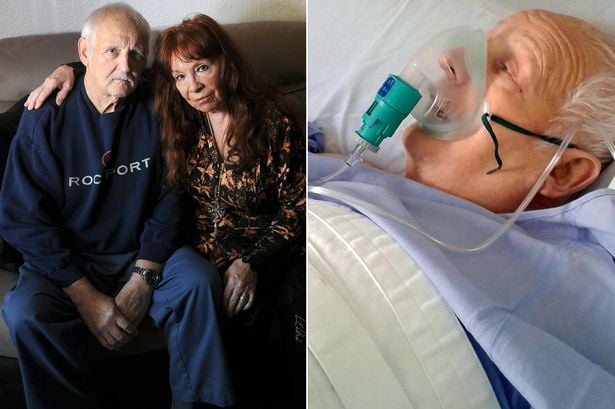A MEDICAL expert has said incontinence pants are ‘standard international practice’ after a British pensioner accused a Spanish hospital for putting him in a ‘nappy’.
Expert medical witness and Olive Press columnist Jeremy Kenton said that incontinence pants are ‘commonly used’ to prevent a risk of infection when caring for patients suffering lapses of consciousness.
It comes as UK national papers have criticised Hospital Marina Baixa on the Costa Blanca for putting John Winterburn, 78, in a nappy.
John alleged the incontinence pants were put on ‘for no obvious reason’ other than ‘humiliation’. He said it was ‘degrading’ for an ex-soldier to be treated this way.
He reportedly spent 10 days in hospital after falling and hitting his head on a concrete plant pot on the first day of a December break in Benidorm, suffering a concussion.
“They put him in a bed nappy, I couldn’t believe it. It was disgusting,” John’s wife, Dianne, told the Sun.
“He’s an ex-soldier, how degrading is that for him?”
Kenton however said that adult nappies – otherwise known as incontinence pants – are a ‘commonsense’ approach for the health and welfare of the patient.
“It’s normal practice and would happen the same in any UK hospital. If a person is unconscious and the bowel evacuates, there’s risk of infection and great discomfort.”
Marina Marina Baixa declined to comment, saying they would not address attempts to ‘smear’ the Spanish health system.









Talk about ignorance is bliss. What a pathetic complaint from a health system that is regonised as one of Europe best. The quote Marina Marina Baixa declined to comment, saying they would not address attempts to ‘smear’ the Spanish health system say it all.
Surprised by this article, in Spain family are expected to help the patients in hospital, by providing some of the services usually provided by nurses in other countries, eg bed pans, showering etc, that’s why there is a reclining chair beside each bed. If his family/friends weren’t around to help, then nappies are provided, so that the nurses can perform their core skills of medical care rather than hygiene care. Different countries, different cultures, ex army or not, if you haven’t someone with you to help, then that’s what you get, they still provides a better health service than many other countries